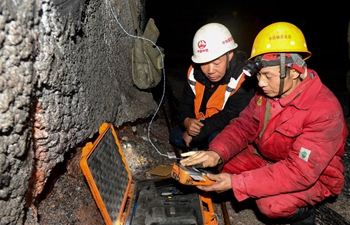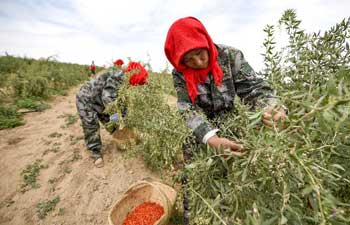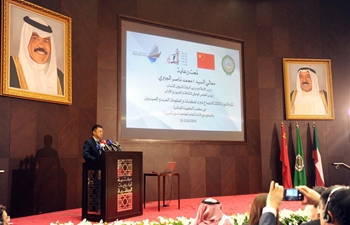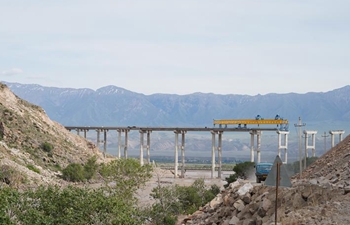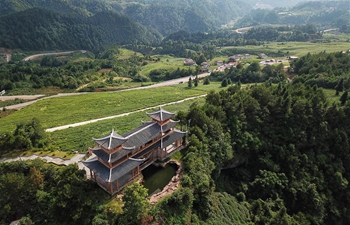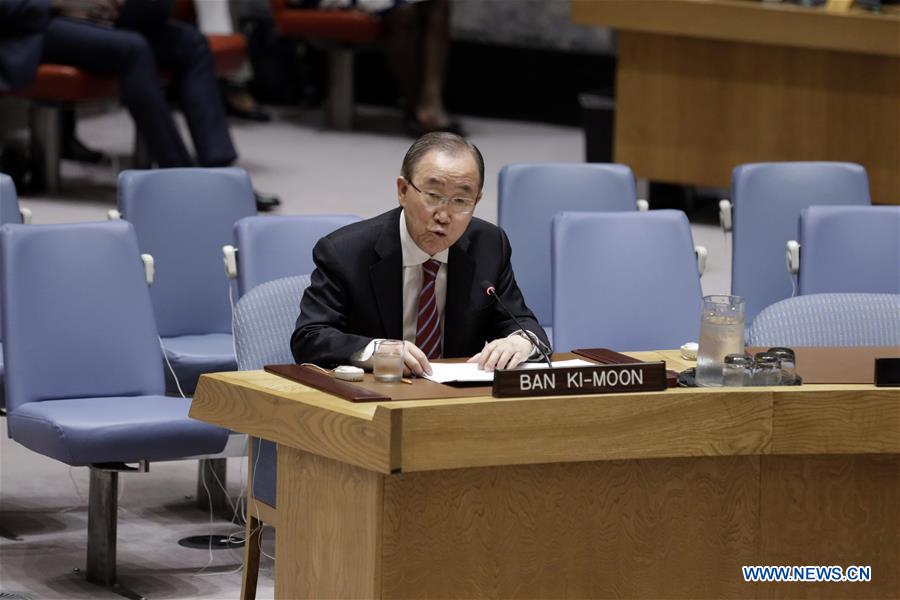
Ban Ki-moon, former Secretary-General of the United Nations and current deputy chair of The Elders, briefs a Security Council meeting on conflict prevention and meditation, at the UN headquarters in New York, June 12, 2019. Ban Ki-moon said on Wednesday a "strong and common voice" of the Security Council is needed "more than ever" amid growing populism and isolationism across the world. (Xinhua/Li Muzi)
UNITED NATIONS, June 12 (Xinhua) -- Former UN Secretary-General Ban Ki-moon said on Wednesday a "strong and common voice" of the Security Council is needed "more than ever" amid growing populism and isolationism across the world.
When the Security Council can cooperate and speak with a strong common voice, "its decisions can have a decisive impact," Ban, a current deputy chair of The Elders, told the chamber. The Elders, initiated by former South African President Nelson Mandela in 2007, is an international non-governmental organization consisting of former leaders of countries and important international organizations.
"This strong, common voice is needed more than ever at this current time, when the deceptive allure of populism and isolationism is growing across all continents, from North and South America to Africa, Asia and Europe," he said.
Before Ban spoke, current UN Secretary-General Antonio Guterres noted a resurgence of populism and policies are contributing to resentment, marginalization and extremism, even in societies that are not at war, rolling back human rights and the progress that has been made over recent decades on gender and inclusion.
Faced with complex, multi-faceted and gravely serious challenges, Ban said it was "profoundly irresponsible" that politicians "collude in or deliberately stoke illusions" for their own gain, in full knowledge that no one country, however powerful, will be able to meet the global challenges on its own.
Meanwhile, "the working methods of the council could be improved," he maintained, advising the council members to "agree on a joint common position to address conflicts in their early stages," including through timely and strong statements.
Turning to the nuclear threat, Ban that said the "risks of nuclear conflict are higher than they have been in several decades."
There is also the risk, he said, that "the whole architecture of arms control and nuclear non-proliferation that was built up during the decades of superpower confrontation may collapse, through a combination of neglect, hubris and ill-founded threat analysis ... The consequences of failure do not bear contemplation," he concluded.
Wednesday's Security Council was held under the agenda of maintenance of international peace and security, focusing on conflict prevention and mediation.




